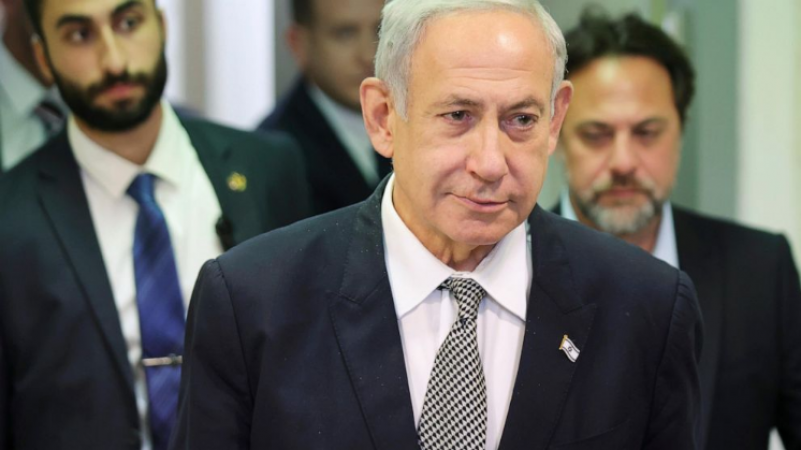
JERUSALEM: In an effort to mend relations that have deteriorated since taking office as the head of Israel's most right-wing government in history, Israeli Prime Minister Benjamin Netanyahu visited a Jordanian palace on Tuesday to meet King Abdullah II for the first time. unexpected trip. over four years.
The leaders' relationship has long been rocky, and their rare meeting now comes as tensions mount over Israel's new ultranationalist government, which took office late last year.
According to Jordan's official statement, the talks focused on the status of a controversial holy site in Jerusalem's Old City that is important to both Jews and Muslims and is at the emotional center of the Israeli-Palestinian conflict.
Also Read: Tsai Ing-wen: War with China 'not an option'
According to Jordan's royal court, the king urged Israel to maintain the status quo at the holy compound, which Jews call the Temple Mount and Muslims the Noble Sanctuary.
The complex, which is the third holiest site in Islam, is situated on a broad plateau where the recognizable Golden Dome of the Rock also stands.
According to Jordan's long-standing system of detention, Jews and other non-Muslims are allowed to visit during specific hours, but are not allowed to pray there.
However, Jewish religious nationalists, including members of Israel's new ruling coalition, have been visiting the site more frequently and calling for equal prayer rights for Jews there, angering Palestinians and Muslims everywhere.
Also Read: Over "respiratory illness," North Korea shuts down its capital
The Jordanian government also reiterated its support for a two-state solution, saying that King Abdullah II urged Israel to "stop its acts of violence" that undermine prospects for a long-term peaceful solution to the Israeli–Palestinian conflict. are doing.
To make the future existence of an independent Palestinian state impossible, Israel's new coalition has vowed to increase Jewish settlements in the occupied West Bank and even annex the territory.
They spoke with Jordan, an important regional ally, about "regional issues" as well as security and economic cooperation, according to Netanyahu's office. A 1994 treaty between Jordan and Israel to normalize relations led to a seemingly shaky peace between the two former enemies.
Since the new Israeli government took office, the Jordanian government has twice summoned Israel's ambassador to Amman, each time in response to an incident at the Al-Aqsa Mosque compound. Netanyahu has assured the public on several occasions that nothing has changed at the site.
Itamar Ben-Gvir, Israel's new hardline minister of national security, made a provocative visit earlier this month, drawing criticism from Jordan and the Arab world. Israeli police briefly prevented the Jordanian ambassador from entering Israel, and Jordan also protested against him.
As part of an informal agreement, Jordanian religious authorities were in charge of managing the complex after Israel took control of East Jerusalem during the 1967 Middle East conflict with the West Bank and Gaza.
Israel is in charge of maintaining order there. Whatever happens at the site has regional ramifications due to Jordan's unique position and the site's importance to Muslims around the world.
Also Read: The UK will implement X-ray age checks to identify adult asylum seekers who are posing as children
In 2017, after a deadly Palestinian attack there, Israel installed metal detectors, cameras and other security measures at the compound's entrances, making the location a major flashpoint between Israel and the Muslim world. Jordan helped resolve the crisis after days of some of the worst Israeli-Palestinian fighting in years.
The neighbors have long had security ties that have strengthened Jordan's position as a Western ally in one of the most volatile parts of the world.